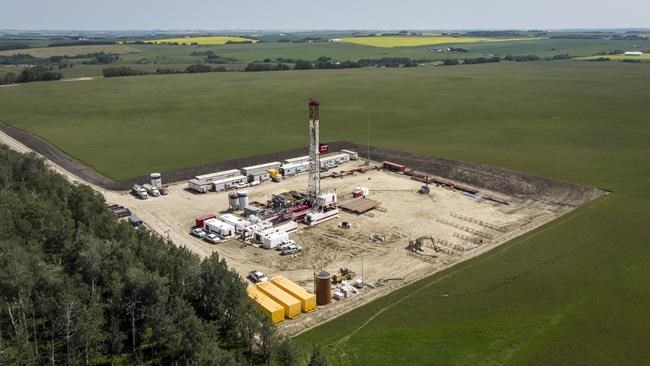OTTAWA — The Liberal government's long-promised plan to transition Canada's labour force to respond to climate change says a clean energy economy will not prompt massive unemployment in the country's energy towns.
It says if Canada plays its cards right, the clean energy economy will create so many jobs there may not be enough workers to fill them. But some of it will require the traditional oil and gas sectors to "aggressively" lower the greenhouse gas emissions produced as the fuels are extracted.
"According to numerous studies, rather than a shortage of jobs, in Canada we are much more likely to see an abundance of sustainable jobs with a shortage of workers required to fill them," reads the new plan published Friday by the federal government.
The 32-page "Sustainable Jobs Plan" comes more than three years after the federal Liberals promised a road map that will protect jobs as Canada adjusts from a combustion-energy powerhouse to a clean-energy economy.
While lacking many specifics, it outlines in broad terms the ways the federal government will help maintain and create energy jobs, as well as transfer workers to net-zero jobs as needed. It includes a new government office to oversee the process, training programs, Indigenous consultation and inclusion and better data to fully understand the jobs that exist now and that could exist in the future.
The promise of job creation mirrors comments made in January by the Pathways Alliance, a consortium of six oilsands companies working to find ways to curb their production emissions, including through large-scale carbon capture and storage systems.
In a roundtable interview with The Canadian Press on Jan. 16, Cenovus CEO Alex Pourbaix said the industry's investments to decarbonize production will "create a boom in the oil-producing provinces that is equivalent to what happened in the '80s and the '90s." Pathways estimates that will create 35,000 new jobs.
The report's name alone, however, signals the political quicksand it lands on, with accusations from Alberta in recent weeks that the federal government intends to impose a "just transition" plan on the province that will wipe out the energy sector entirely.
While the term "just transition" is the international standard used to describe ensuring the protection of workers during economic changes, critics including Alberta Premier Danielle Smith seized on it as evidence the Liberals plan to shut down her province's energy industry.
Natural Resources Minister Jonathan Wilkinson has said for months he prefers the term "sustainable jobs" because it is more accurate.
Smith has appeared more open to the notion of a "sustainable jobs" strategy but her skepticism at the Liberals' intentions remains high.
Just one day before the plan was released, Smith wrote again to Prime Minister Justin Trudeau asking him to put the whole thing on ice.
She said the just transition plan, along with federal regulations to cap emissions from oil and gas production and create a zero-emissions electricity grid, "would pose an unconstitutional and existential threat to the Alberta economy and the jobs of hundreds of thousands of Albertans."
Trudeau and Smith met in Ottawa on Feb. 7, where they discussed ways to co-operate on clean energy including Alberta's willingness to provide more government aid for oil producers to install carbon capture and storage systems.
But she said in her letter Thursday that scrapping the jobs transition plan was a "non-negotiable condition" of Alberta doing that.
The report goes out of its way to try and debunk accusations the clean energy economy is an attempt to phase out Canada's oil and gas industry completely.
It says global demand for oil will be down 75 per cent by 2050, and demand for gas about half of what it is today. But it says oil and gas will be needed for non-combustion uses, including in plastics, solvents, lubricants and waxes.
Canada can still have a vibrant, if smaller, oil and gas industry by 2050 but only with effort to make production-related emissions "ultralow."
"It is in this context that aggressively lowering emissions from the production of fossil fuels, in line with Canada’s climate commitments, is both a competitive advantage and a source of sustainable jobs," the report said.
It also said while many people will need training for the jobs emerging in clean energy and battery production, some jobs in the oilpatch already come with the skills needed for things like hydrogen production and biofuel development.
This report by The Canadian Press was first published Feb. 17, 2023.
Mia Rabson, The Canadian Press



